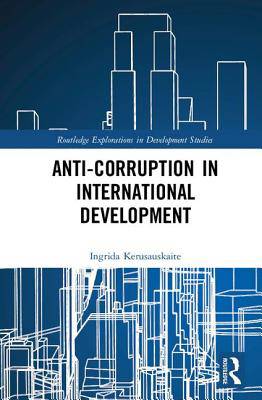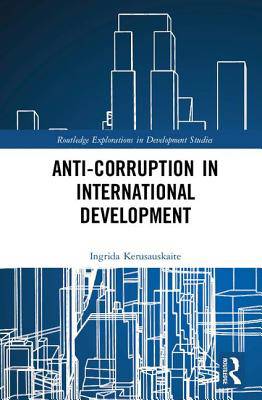
- Retrait gratuit dans votre magasin Club
- 7.000.000 titres dans notre catalogue
- Payer en toute sécurité
- Toujours un magasin près de chez vous
- Retrait gratuit dans votre magasin Club
- 7.000.0000 titres dans notre catalogue
- Payer en toute sécurité
- Toujours un magasin près de chez vous
Description
Corruption is linked to a wide range of developmental issues, including undermining democratic institutions, slowing economic development and contributing to government instability, poverty and inequality. It is estimated that corruption costs more than 5 per cent of global GDP, and that more than one trillion US dollars are paid in bribes each year. This book unpacks the concept of corruption, its political and ethical influences, its measurement, commitments to combat corruption and ways that this is being attempted.
Building on the research on the nature, causes and consequences of corruption, this book analyses international anti-corruption interventions in particular. It discusses approaches to focus efforts to tackle corruption in developing countries on where they are most likely to be successful. The efforts of the UK are considered as a detailed case study, with comparisons brought in as necessary from other countries' and multilateral institutions' anti-corruption efforts.
Bridging a range of disciplines, Anti-Corruption in International Development will be of interest to students and scholars of international development, public administration, management, international relations, politics and criminal justice.
Spécifications
Parties prenantes
- Auteur(s) :
- Editeur:
Contenu
- Nombre de pages :
- 246
- Langue:
- Anglais
- Collection :
Caractéristiques
- EAN:
- 9781138575349
- Date de parution :
- 14-02-18
- Format:
- Livre relié
- Format numérique:
- Genaaid
- Dimensions :
- 156 mm x 234 mm
- Poids :
- 526 g

Les avis
Nous publions uniquement les avis qui respectent les conditions requises. Consultez nos conditions pour les avis.






